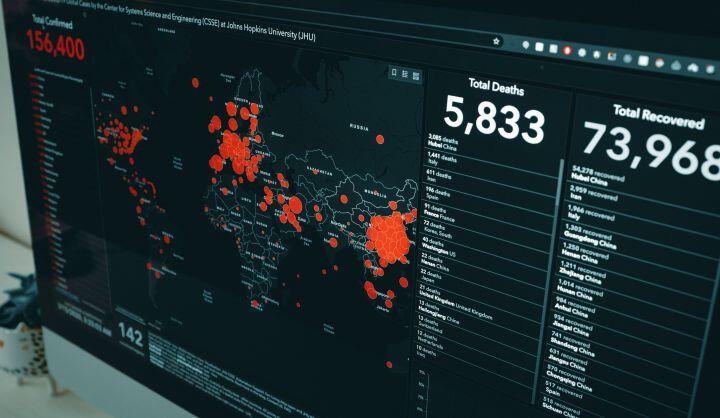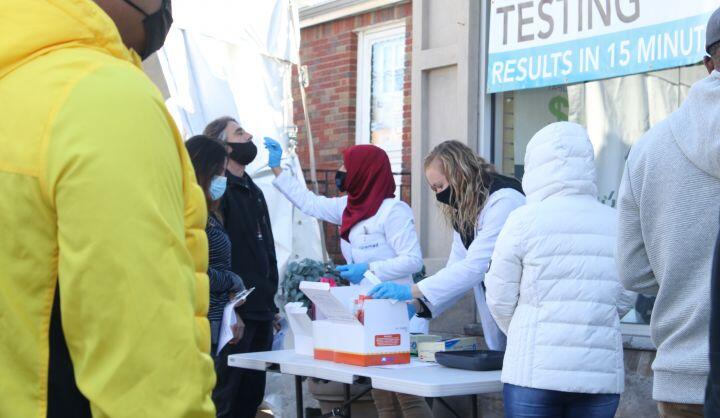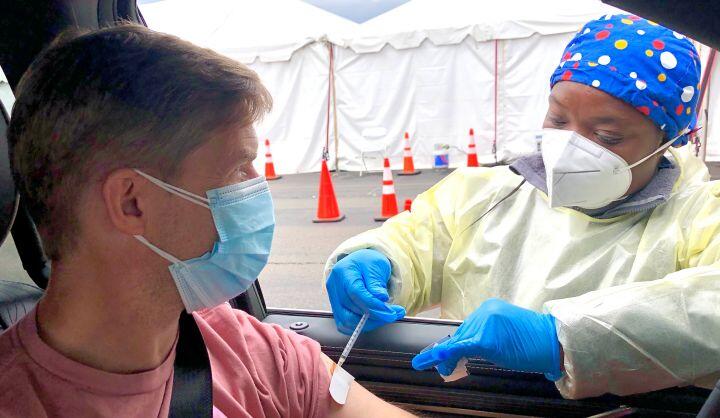- May 13, 2020
- COVID-19
COVID-19 is a fast-moving pathogen that brought the entire world to a screeching halt in a matter of weeks. In response to the outbreak, one thing has been critical for epidemiologists and public health experts in their efforts to stop the virus’ spread: open data. In a recent bulletin post on their site, the World Health Organization highlighted the enormously important role “public access platforms” played in “accurately diagnosing infections early in the current emergency.” Now, open data continues to play a significant role in this fight.
In addition to its role in the scientific community, open data can also play a critical role in helping local and state governments prepare and adapt their responses as the situation on the ground changes. Below are several open data resources local leaders can leverage as this crisis evolves.
COVID-19 Open Dataset Collection by data.world
Many datasets have been opened across the globe to help in the fight against COVID-19. Tracking down all of those datasets can be a challenge. That is where data.world, a cloud-native open data catalog, comes in. The site provides quick and easy access to nearly 30 open datasets related to the outbreak. Some of the datasets currently on the site include a Coronavirus Twitter analysis that seeks to flag patterns in misinformation, ACAPS COVID-19 government measures which tracks government responses to the outbreak, and the US City COVID-19 vulnerability dataset, among others.
Collecting and Sharing Government Approaches to COVID-19
Clearly, there is no playbook for how to effectively respond to this specific outbreak. Each individual city is going to act based on their unique conditions, but it helps to see what other governments are doing. Recognizing that collecting and sharing best practices during this time is critical for shaping local policy responses, the Open Government Partnership, as well as the National League of Cities (in partnership with Bloomberg Philanthropies), are curating global government responses.
The NIH’s Open-Access Data and Computational Resources Page
The National Institutes of Health has a dedicated page for sharing open data resources. Many of the datasets are helpful for use by epidemiologists and health researchers, but there are a few resources for local government leaders as well. Among those are the link to the Data-Against COVID Team, a dedicated group of 600 volunteers (including data scientists, machine learning experts and software developers) offering expertise/consultation on data analysis challenges, and the NASEM Standing Committee on Emerging Infectious Disease and 21st Century Threats, a group of experts providing assistance on data system design and modeling for data-driven decision making related to the outbreak.
COVID-19 Open Research Dataset (CORD-19)
The Allen Institute for AI, in partnership with several leading research organizations and the US Federal government, has launched CORD-19, an open source dataset with over 50,000 scholarly articles about COVID-19 and other related coronaviruses. Sharing this dataset is meant to encourage researchers across the world to apply new techniques in natural language processing, in order to generate new insights and patterns. As part of this open dataset, the Allen Institute for AI created CoViz, a tool researchers can use to explore correlations and patterns in the dataset, and CORD-19 Explorer, a full text search engine. Kaggle is also hosting the COVID-19 Open Research Dataset Challenge to encourage researchers across the world to help the global healthcare and public health communities get answers to their most pressing questions.
HCA Healthcare, Google Cloud Open Data Platform for Hospitals
HCA Healthcare has partnered with Google Cloud and healthcare systems across the US to build an open data portal meant to help provide a real-time view of the outbreak. The COVID-19 National Response Portal is built as a secure portal that helps show anonymized, HIPAA-compliant data and aggregated metrics from hospitals across the country. The hope is that hospital administrators can identify patterns and evaluate response capabilities so they can better prepare or adjust their response efforts. Selected metrics include supply and utilization of ICU beds and ventilators, as well as the number of negative/positive/pending tests and discharged patients.
Oxford’s Government Response Tracker
As noted, knowing what actions to take in this unfamiliar time can be a daunting task. Governments that are preparing for the outbreak to reach them and/or intensify can rely on a dataset to gauge the success or failure of the policies they are considering. The University of Oxford has been tracking government actions across the world in response to COVID-19, and with the Oxford Government Response Tacker, governments can look at actions taken by other governments at different stages of their respective outbreaks, to better understand what actions were effective or ineffective in preventing greater spread of the virus.
The COVID Tracking Project’s State Testing Data Report Cards
The greatest challenge in responding to this outbreak is the lack of available testing data. To fill this gap, The Atlantic launched the COVID Tracking Project. Here states can see their testing report card and compare the quality of their testing data to other states. This can help identify areas for state-level improvement and share lessons learned from states with successful responses.
The World Bank’s Database on COVID-19 Trade Flows and Policies
Through its Open Data Catalog, the World Bank is tracking the flow of global, essential medical supplies and the trade policies impacting their movement. This helps local leaders monitor the flow of critical supplies and informs their preparation and response efforts, based on anticipated supply.
These are just a few of the many open data resources available across the internet. We will continue to monitor for more useful resources for local government leaders. If you know of any open data resources not featured here that other local leaders would find valuable, please matthew_leger@hks.harvard.edu





